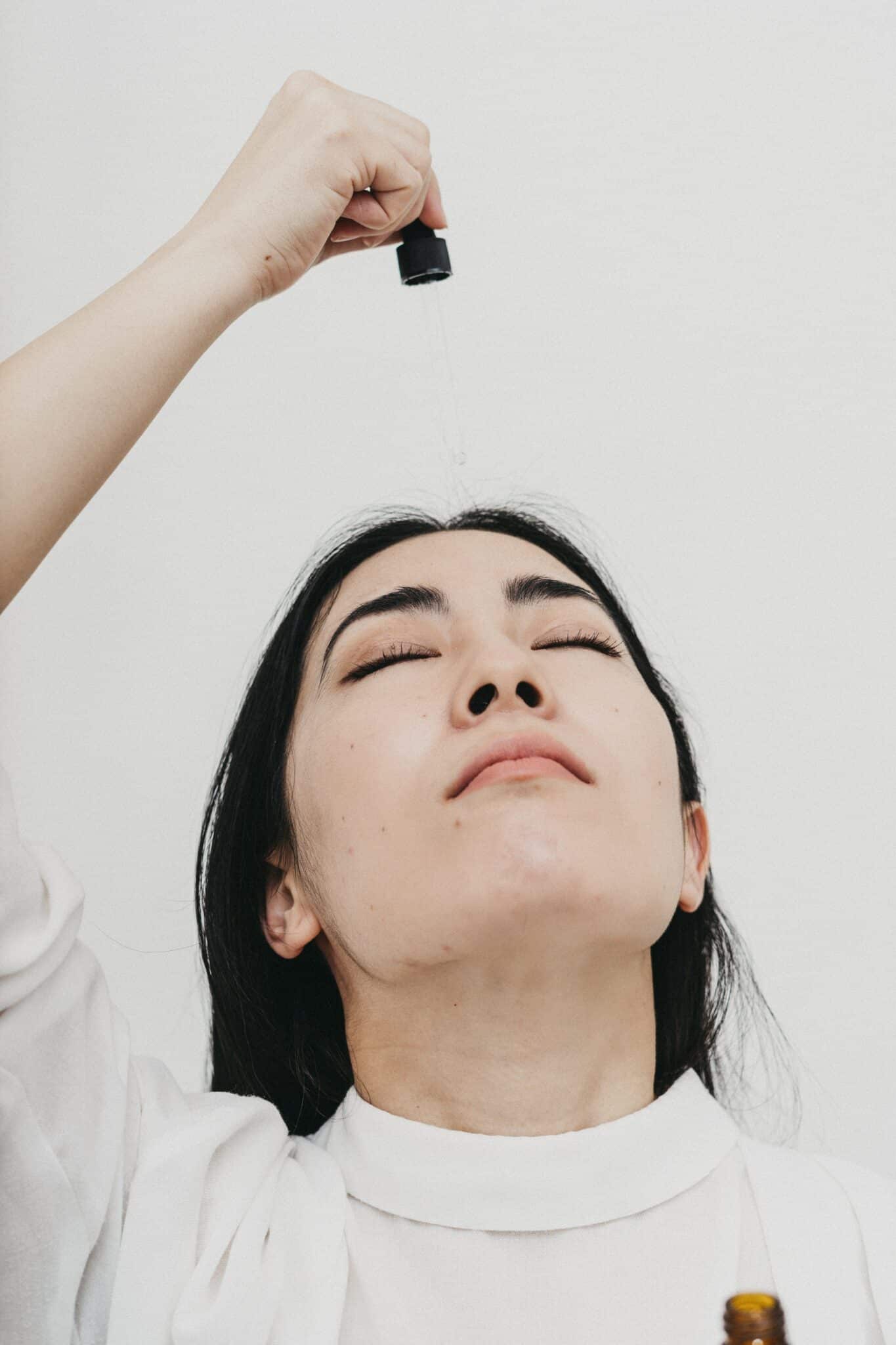We use coconut oil in so many ways that it’s almost correct to say it’s a super ingredient, whether in cooking or beauty.
If you haven’t heard, there are also people using it as a tanning oil.
Tanning is a topic that elicits so many reactions, with experts on one side telling us to stay safe while out in the sun and the beauty industry bombarding us with all manner of sun protection.
That’s why more people want to know the connection between coconut oil and tanning.
So, does coconut oil help you tan?
First, let’s explore:
Coconut Oil Benefits on Your Skin
Coconut oil boosts good cholesterol, improves brain function, and aids weight loss. But does it help your skin?
Yes, it:
Moisturizes Your Skin

It’s an age-old remedy for dry skin because of its hydrating properties. That’s the reason this oil is in many beauty products.
Has Anti-inflammatory Properties
It treats so many skin conditions, including eczema and contact dermatitis. This oil also treats inflammation caused by exposure to harmful sun rays.
Assists In Healing Wounds
It’s rich in free fatty acids like lauric acid, linoleic acid, and oleic acid. Its antimicrobial properties kill various pathogens that may exacerbate wounds. On top of that, it improves the barrier. You also enjoy the antifungal properties of monolaurin contained in lauric acid.
Before we explore this oil’s sun protection factor, here’s an important bit about UV exposure.
The Effects of UV Exposure

We can’t do without the sun. We need sunlight to beat stress and depression, maintain bone health, improve our sleep patterns… That’s why we look forward to summer.
But, like every other good thing, too much of it is dangerous. In this case, overexposure to the sun can damage our skin. You’ll be exposing it to both UVA and UVB rays, each with its set of detrimental effects.
Whether you’re tanning in the heat of summer or on overcast days, too much sun exposure without using sun protection will damage your skin. It can age your skin prematurely, and you can also get skin cancer from overexposure.
Regardless of the amount of sunscreen or tanning lotion you apply, tanning can get out of hand. The hydrating properties of coconut oil hide the damage underneath as the sun burns your skin. It’ll make you think you’re just sweating from applying too much oil on your skin, but in the real sense, your skin will be begging you to get out of the sun.
Does Coconut Oil Help You Tan?
It’s a top choice as a tanning oil because of its unadulterated state, offering nourishing properties without the chemicals in sun protection products. Plus, it’s cost-effective, and a little covers a large area.
Oiling your skin before sun exposure is a wise idea. Dry skin would burn after a few minutes in the sun. However, coconut oil doesn’t have a good SPF to use as a sunscreen.
In a study to determine the SPF value of various oils, the results showed that coconut oil had an SPF of 8, with others like rose and peppermint oils offering lower sun protection. It was a lab activity, not a test on human skin. But, it used spectrophotometry, which measures light absorption.
The findings prove you may get sunburns if you spend a lot of time outdoors with only coconut oil on your skin. That also means you can tan faster using this oil. You’ll also notice that you get a darker tan because of the low SPF of the oil, meaning it doesn’t block rays completely.
When you’re in the sun, it prompts your melanocytes to produce more melanin to block the damaging rays. It’s the body’s way of reacting to overexposure. Thus, if you stay out longer, the body produces more, and your skin darkens. The body’s reaction starts faster when you tan with no oil, sunscreen, or tanning lotion.
A good SPF should be 30+ and broad spectrum so it can protect you from both UVA and UVB rays. Coconut oil is not even close to SPF 10, so it’s counterproductive to use it instead of sunscreen.
The longer you bask, the more you expose your skin to the sun with only a layer of coconut oil as protection.
Can you mix the oil with sunscreen?
No, don’t mix coconut oil with sunscreen, as the combination can irritate your skin. The oil will also prevent the skin from absorbing the ingredients in your sunscreen.
Here’s what you can do.
- Wear clothes and accessories that protect your skin, and this includes a beach cover-up, sunglasses, and a hat. Also, wear shoes instead of flip-flops. All of these changes will minimize exposure when you’re spending a lot of time outdoors.
- Use sunscreen with coconut oil to hydrate and nourish your skin for the duration you stay outside.
- Note, we didn’t say coconut oil instead of sunscreen.
- Reapply sunscreen after two hours to get more protection. When you sweat or swim, the protection lowers considerably.
- Spend the least time tanning to avoid sun damage and doing so when the sun is too hot.
Soothe your skin with pure coconut oil after tanning to enjoy the anti-inflammatory benefits we talked about earlier. The oil’s moisturizing ingredients will smoothen the skin and prevent moisture loss. As you do so, be wary of using it on your face if you have sensitive, acne-prone skin as it’s comedogenic.
FAQs
Does coconut oil remove fake tan?
Yes, if you didn’t tan in the sun, you can exfoliate with a product containing coconut oil. One of the popular combinations is coconut oil with sugar and coffee grounds. It’s a natural exfoliant that moisturizes and removes dead skin cells. It works because a sunless tan changes the top layer of the skin.
When you tan in the sun, coconut oil can’t remove the tan no matter how many layers you apply.
As we mentioned, your skin darkens as a protective measure against overexposure to the sun.
Therefore, the burst of melanin created to counter sun damage won’t disappear while you’re still going out in the sun. It’ll continue producing more. That’s why coconut oil can’t undo this process. Also, the effect is beyond the top layer of your skin.
Does coconut oil attract the sun?
Yes, you’ll expose your skin to about 80% of the harmful rays because coconut oil has a low SPF. It’s hydrating and nourishing, but it can’t block the sun.
We can say you’ll be a magnet drawing all the rays to your skin and causing it to darken or burn. It’ll be worse if you tan at midday when the sun is higher and hotter.
Final Thoughts
Coconut oil has SPF better than most oils, but it’s not commendable. It’ll treat skin conditions and inflammations that most oils can’t. It’ll also moisturize your skin and hydrate it with its fatty acids. However, using it doesn’t guarantee protection from UVA and UVB rays.
Without sunblock, the skin has to produce more melanin to prevent sunburns. The longer you stay outdoors, the more melanin it creates, and that’s why your skin darkens.
Therefore, using coconut oil with its low SPF means you’ll tan dark and fast, but you’ll risk getting worse skin damage as you’ll be basking without significant sun protection.
Related Articles
21
Dec
How Long Does It Take to Get a Noticeable Tan?
Tanning sessions can take five minutes or a couple of hours. Two main factors responsible are the source of light and your skin tone. If you have fair skin, you'll take longer to see it change to a stunning darker[...]
20
Dec
Why Don’t My Legs Tan? Helpful Tips on How to Tan Legs
Getting a perfect tan is a process. You have to control exposure to get an even tan without overexposure to some body parts. When the sun is too hot, you get sunburns instead of darker skin. If you stay out[...]
18
Dec
Can You Tan When It’s Cloudy? The Answer Might Surprise You
Tanning is about controlling when and how much sun exposure you get. When it's too much, you get sunburns. When overexposure prevails, you may get skin problems. Therefore… There's a tendency for people to tan on overcast days because it[...]
Categories: Tanning
